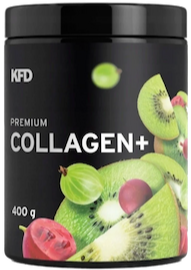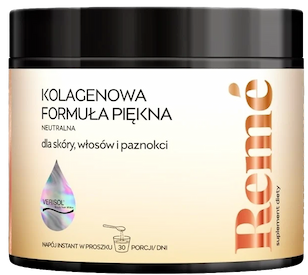Best collagen and hyaluronic acid supplements for joints and better skin
Discover the best collagen and hyaluronic acid formulations and why you should use them.


Learn more about our editorial process
.

Learn more about our editorial process
.

Learn more about our editorial process
.

Learn more about our editorial process
.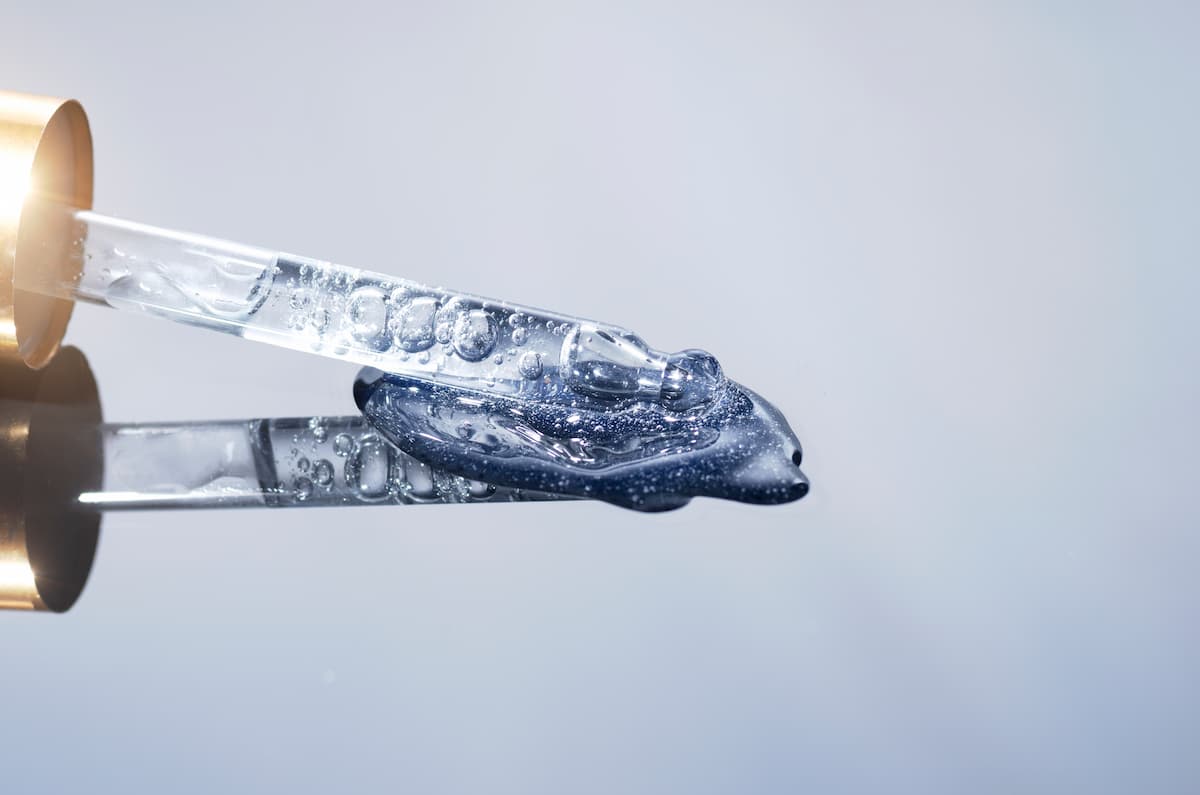
Why you can trust us
Articles on Natu.Care are written based on scientific research, data from government websites and other reliable sources. The texts are written in cooperation with doctors, nutritionists and other health and beauty experts. Articles are reviewed before publication and during significant updates.
.Learn more about our editorial process
.Information about advertisements
Content on Natu.Care may contain links to products from the sale of which we may receive a commission. When creating content, we adhere to high editorial standards and take care to be objective about the products discussed. The presence of affiliate links is not dictated by our partners, and we select the products we review ourselves completely independently.
.Learn more about our terms and Conditions
.Collagen and hyaluronic acid - the perfect combination. Collagen gives the skin elasticity and hyaluronic acid hydrates it.
But their effects do not stop at beauty. Collagen with hyaluronic acid is also a support for joint cartilage, muscles and bones. Throw vitamin C into the mix and you're set.
And it's not just for your skin.
From this article you will learn:
- Why collagen and hyaluronic acid are a good combination.
- What are the best collagen preparations with hyaluronic acid.
- What effects you may notice with regular supplementation.
- What else should be included in the ideal supplement.
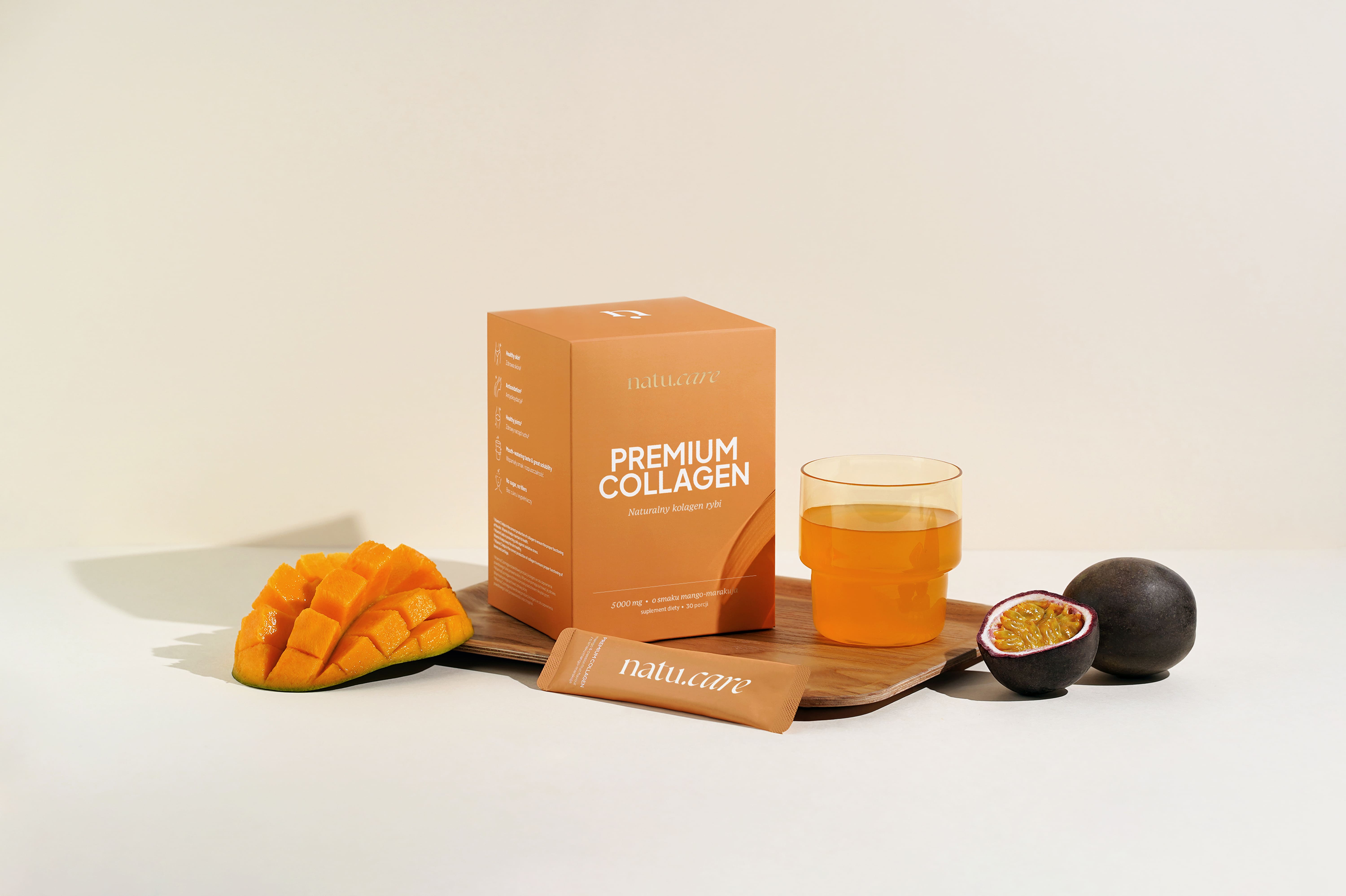
Sprawdź, za co pokochały go tysiące klientek Kolagen Premium 5000 mg, mango-marakuja
Natu.Care Kolagen Premium 5000 mg, mango-marakuja
Natu.Care Kolagen Premium dla zdrowia stawów, skóry, paznokci i włosów. Najlepsza przyswajalność. Optymalna dawka 5 000 lub 10 000 mg. Przebadany przez niezależne laboratorium.
Zobacz więcej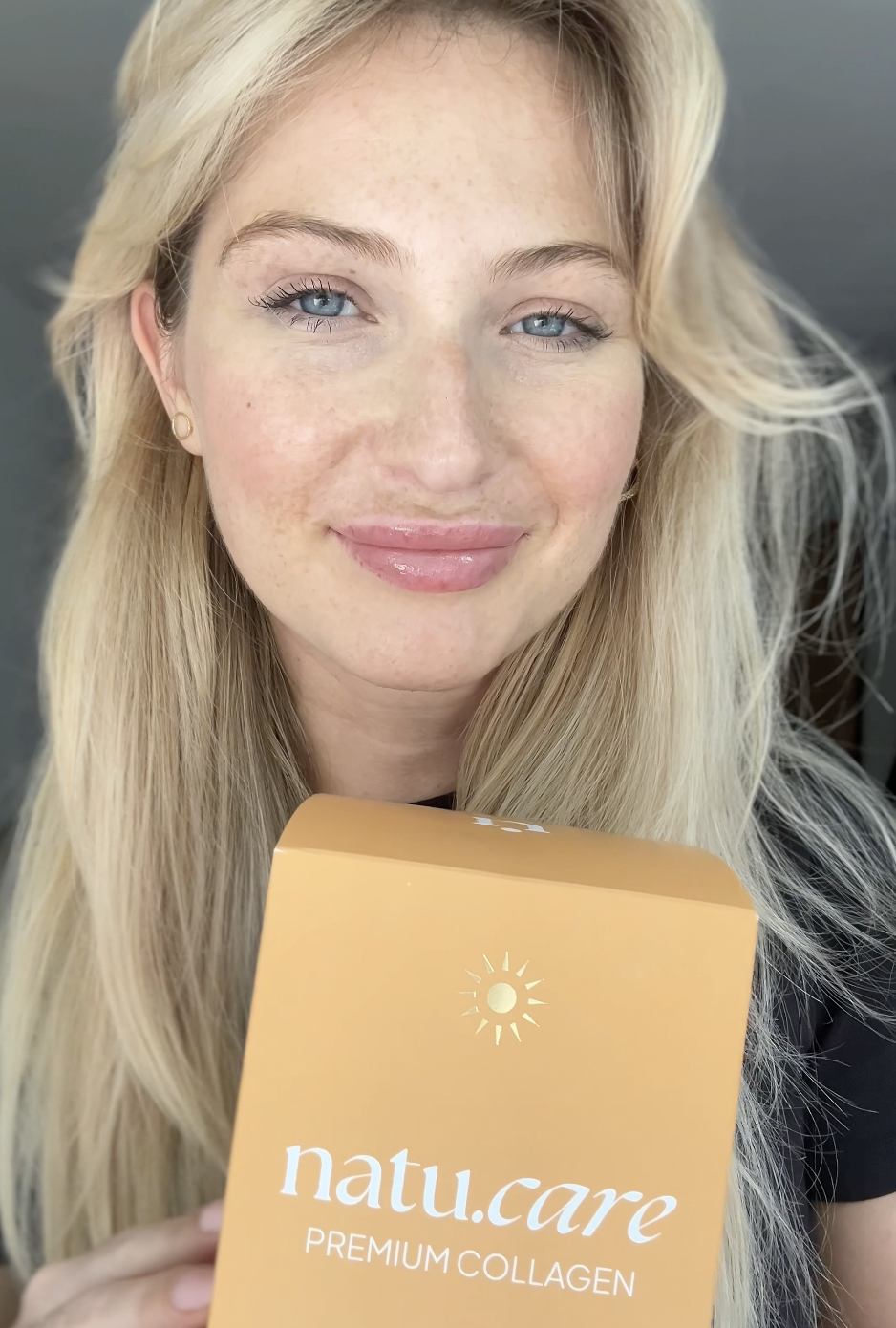
Wybrałam kolagen Natu.Care, ponieważ miał super opinie – a to było dla mnie bardzo ważne! Odkąd go stosuję, moja skóra znacznie się poprawiła i jest nawilżona, a na głowie pojawiły się nowe "baby hair".@Kasia S.
See also:
- The most powerful collagen
- Hair collagen
- Facial collagen
- Collagen for wrinkles
- Collagen for skin
- Collagen for acne
- Collagen for cellulite
- Collagen for stretch marks
- Collagen for scars
- Collagen for joints
- Collagen for bones
- Collagen for athletes
What is the benefit of combining collagen and hyaluronic acid?
Hyaluronic acid is a great complement to collagen. It has a stimulating effect on tissue regeneration, including collagen fibres. Thus, hyaluronic acid complements the properties of collagen and has an anti-wrinkle effect, improving the appearance of the skinand
Hyaluronic acid also has the function of binding water in the body, which translates into optimal hydration of the tissues, especially the skin. Collagen provides it with the scaffolding necessary to maintain firmness, while hyaluronic acid ensures that the cells that sit between this scaffolding are properly hydrated. This dual action fills in wrinkles and bumps.
Interesting facts
As much as 50% of the body's hyaluronic acid is found in the skinand
Hyaluronic acid is also a natural component of joint fluid and a lack of it can cause arthritis
At the same time, it is the excess hyaluronic acid that is the factor that prevents morning joint movement in ankylosing spondylitis.

Ilona Krzak Master of Pharmacy
See also:
Which hyaluronic acid collagen is best?
The best collagen and hyaluronic acid supplements should contain forms that are easily absorbed by the body. This will ensure you get the best results. Look for formulations containing collagen hydrolysate preferably fish originand
It is also worth looking at the particle size of hyaluronic acid. The most easily penetrated into the body is the small-molecule one.
Pay attention to the dosage of the active ingredients. To achieve full and fast treatment results, it is advisable to choose supplements containing between 2.5 and 15 grams of collagen and between 120 and 240 milligrams of hyaluronic acidand
Hyaluronic acid collagen - ranking
Considering the above, we have prepared a ranking of the best collagen and hyaluronic acid products.
Criteria:
- Adequate daily dose -the right amount of active ingredients is crucial to whether and how quickly the treatment will work.
- Adequate daily dose -the right amount of active ingredients is crucial to whether and how quickly the treatment will work.
- Collagen form - we have selected supplements containing the best-absorbed collagen in hydrolysate form.
- Additional active ingredients - vitamins, minerals and plant extracts to complement and enhance the effects of collagen.
- Purity of composition - no fillers or colourings and assurance that the product is not contaminated with, for example, heavy metals.
- Form of supplement - tablets, shots or maybe sachets of powder? Choose what is most convenient for you. Here you can see the full criteria
Natu.Care Collagen Premium 5000 mg, mango-maracuja

- Collagen content: 5000 mg marine collagen hydrolysate
- .
- Additional active ingredients: vitamin C, low molecular weight hyaluronic acid (and L-theanine and coenzyme Q10 in cocoa flavoured collagen or vitamin A and vitamin E in mango–passion fruit flavoured collagen)
- .
- Form: powder sachets
- .
- Dose: 1 sachet per day
- .
- Sufficient for: 30 days
- .
Product description
Fish collagen from the Natu.Care brand in a dose of 5000 mg. The formula contains a sufficient portion of the active substance to positively affect your joints, musculoskeletal system and immunity.
Take care of your tendons, joint cartilage, ligaments, muscles and even bones by supplying them with the building blocks to function properly. Move without bólu and provide the necessary support for any physical activity.
And as a „gratis” to regular supplementation, you will also receive firm skinóhand, healthy and shiny hair and strong nails.
Natu.Care Premium Collagen is available in two flavours – Cacao Bloom and Rise&Shine. Both formulas are based on the following active ingredients: marine collagen hydrolysate, wild roseóbud extract and hyaluronic acid.
Additionally, Cacao Bloom contains natural L-theanine, coenzyme Q10 and defatted Dutch cacao. Rise&Shine instead contains vitamin E and vitamin A.
These are the best collagens in the world.
These best fish collagens on the market also rós taste – Cacao Bloom is a treat for chocolate lovers. Rise&Shine will appeal to those whoóenjoy the refreshing taste of mangoófruit and passion fruit.
Pros and cons
Fish collagen from the Natu.Care brand in a dose of 5000 mg. The formula contains a sufficient portion of the active substance to positively affect your joints, musculoskeletal system and immunity.
Take care of your tendons, joint cartilage, ligaments, muscles and even bones by supplying them with the building blocks to function properly. Move without bólu and provide the necessary support for any physical activity.
And as a „gratis” to regular supplementation, you will also receive firm skinóhand, healthy and shiny hair and strong nails.
Natu.Care Premium Collagen is available in two flavours – Cacao Bloom and Rise&Shine. Both formulas are based on the following active ingredients: marine collagen hydrolysate, wild roseóbud extract and hyaluronic acid.
Additionally, Cacao Bloom contains natural L-theanine, coenzyme Q10 and defatted Dutch cacao. Rise&Shine instead contains vitamin E and vitamin A.
These are the best collagens in the world.
These best fish collagens on the market also rós taste – Cacao Bloom is a treat for chocolate lovers. Rise&Shine will appeal to those whoóenjoy the refreshing taste of mangoófruit and passion fruit.
Additional information
Fish collagen from the Natu.Care brand in a dose of 5000 mg. The formula contains a sufficient portion of the active substance to positively affect your joints, musculoskeletal system and immunity.
Take care of your tendons, joint cartilage, ligaments, muscles and even bones by supplying them with the building blocks to function properly. Move without bólu and provide the necessary support for any physical activity.
And as a „gratis” to regular supplementation, you will also receive firm skinóhand, healthy and shiny hair and strong nails.
Natu.Care Premium Collagen is available in two flavours – Cacao Bloom and Rise&Shine. Both formulas are based on the following active ingredients: marine collagen hydrolysate, wild roseóbud extract and hyaluronic acid.
Additionally, Cacao Bloom contains natural L-theanine, coenzyme Q10 and defatted Dutch cacao. Rise&Shine instead contains vitamin E and vitamin A.
These are the best collagens in the world.
These best fish collagens on the market also rós taste – Cacao Bloom is a treat for chocolate lovers. Rise&Shine will appeal to those whoóenjoy the refreshing taste of mangoófruit and passion fruit.
User review
Fish collagen from the Natu.Care brand in a dose of 5000 mg. The formula contains a sufficient portion of the active substance to positively affect your joints, musculoskeletal system and immunity.
Take care of your tendons, joint cartilage, ligaments, muscles and even bones by supplying them with the building blocks to function properly. Move without bólu and provide the necessary support for any physical activity.
And as a „gratis” to regular supplementation, you will also receive firm skinóhand, healthy and shiny hair and strong nails.
Natu.Care Premium Collagen is available in two flavours – Cacao Bloom and Rise&Shine. Both formulas are based on the following active ingredients: marine collagen hydrolysate, wild roseóbud extract and hyaluronic acid.
Additionally, Cacao Bloom contains natural L-theanine, coenzyme Q10 and defatted Dutch cacao. Rise&Shine instead contains vitamin E and vitamin A.
These are the best collagens in the world.
These best fish collagens on the market also rós taste – Cacao Bloom is a treat for chocolate lovers. Rise&Shine will appeal to those whoóenjoy the refreshing taste of mangoófruit and passion fruit.
Natu.Care Collagen Premium 10000 mg, cherry

- Collagen content: 10,000 mg of hydrolyzed bovine collagen
- Additional active ingredients: vitamin C, low molecular weight hyaluronic acid, glucosamine, chondroitin, extract of Indian frankincense resin (boswellia serrata)
- Form: powder sachets for drinking
- Serving: 1 sachet per day
- Lasts for: 30 days
Product description
One of the strongest collagens on the market, providing as much as 10,000 mg per daily serving. This product can effectively support the condition of joints, skin, hair, and nails.
With this supplement, you will support your skeletal and joint system as well as your beauty, helping you visually halt the aging process and feel rejuvenated!
Pros and cons
Pros:
- The daily portion of collagen is very large – as much as 10,000 mg.
- Proven collagen formula – COLLinstant, whose effectiveness has been confirmed in clinical studies.
- Effective dose of hyaluronic acid, which additionally moisturizes the skin and positively affects joint health.
- Vitamin C supports the body's natural collagen production.
- Glucosamine is a fundamental building block of compounds found in joint cartilage and a component of collagen that gives elasticity to connective tissue in tendons.
- Chondroitin is a natural component found in the human body, mainly in cartilage. This large molecule (mucopolysaccharide) has the ability to absorb water, which helps maintain the elasticity and resilience of cartilage.
- Frankincense resin extract supports blood circulation and joint mobility and reduces their stiffness. It may help alleviate inflammatory conditions.
- The composition has been tested by the independent and accredited J.S. Hamilton laboratory.
Cons:
- None.
Additional information
Users praise Natu.Care Collagen Premium for the easy dissolving of the powder.
ALLDEYNN Collarose Fish
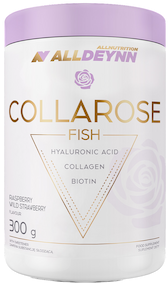
- Collagen content: 5000 mg hydrolysate fish collagen VERISOL F® .
- Additional active ingredients: vitamin C, hyaluronic acid, biotin
- Form: powder to dissolve in water .
- Dose: one scoop (6 g) of powder daily .
- Sufficient for: 50 days .
Product description
Atlantic cod collagen VERISOL F® contained in the formula are easily absorbed collagen peptides of fish origin. Regular supplementation can firm your skinóhand and slow down the ageing process. Your nails will become stronger and stop breaking. The addition of biotin will improve the condition of your hairów. The collagen portion is high enough to also have a good effect on your joints, muscles and bones.
Pros and cons
Atlantic cod collagen VERISOL F® contained in the formula are easily absorbed collagen peptides of fish origin. Regular supplementation can firm your skinóhand and slow down the ageing process. Your nails will become stronger and stop breaking. The addition of biotin will improve the condition of your hairów. The collagen portion is high enough to also have a good effect on your joints, muscles and bones.
Additional information
Atlantic cod collagen VERISOL F® contained in the formula are easily absorbed collagen peptides of fish origin. Regular supplementation can firm your skinóhand and slow down the ageing process. Your nails will become stronger and stop breaking. The addition of biotin will improve the condition of your hairów. The collagen portion is high enough to also have a good effect on your joints, muscles and bones.
Expert and user opinion
Atlantic cod collagen VERISOL F® contained in the formula are easily absorbed collagen peptides of fish origin. Regular supplementation can firm your skinóhand and slow down the ageing process. Your nails will become stronger and stop breaking. The addition of biotin will improve the condition of your hairów. The collagen portion is high enough to also have a good effect on your joints, muscles and bones.
DuoLife Collagen fish collagen 2500 mg
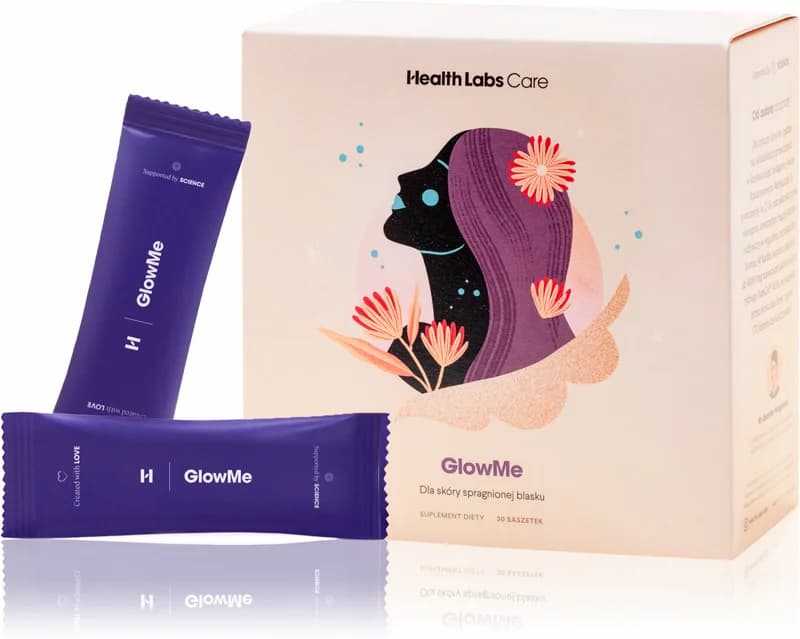
- Collagen content: 2500 mg collagen
- Additional active ingredients: vitamin C, silicon, glucosamine, hyaluronic acid, nettle and bamboo extracts
- Form: liquid to drink .
- Dose:25 ml .
- Sufficient for: 30 days .
Product description
100% natural collagen liquid without unnecessary ingredientsós. The composition of ingredientsós improves the appearance and condition of skinóry, hairów, nails. DuoLife is a good choiceór if you notice the first signs of skinóry ageing or want to stop this process. A tasty liquid, convenient to use.
Pros and cons
100% natural collagen liquid without unnecessary ingredientsós. The composition of ingredientsós improves the appearance and condition of skinóry, hairów, nails. DuoLife is a good choiceór if you notice the first signs of skinóry ageing or want to stop this process. A tasty liquid, convenient to use.
Additional information
100% natural collagen liquid without unnecessary ingredientsós. The composition of ingredientsós improves the appearance and condition of skinóry, hairów, nails. DuoLife is a good choiceór if you notice the first signs of skinóry ageing or want to stop this process. A tasty liquid, convenient to use.
User review
100% natural collagen liquid without unnecessary ingredientsós. The composition of ingredientsós improves the appearance and condition of skinóry, hairów, nails. DuoLife is a good choiceór if you notice the first signs of skinóry ageing or want to stop this process. A tasty liquid, convenient to use.
Pharmovit liquid collagen 10000 mg
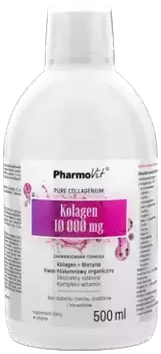
- Collagen content: 10000 mg hydrolysed bovine collagen types I and III .
- Additional active ingredients: hyaluronic acid, natural plant extracts, vitamin C, B vitamins, zinc, vitamin D
- Form: vials .
- Dose: 25 ml .
- Sufficient for: 20 days .
Product description
A solid daily dose of collagen for jointómuscle and bone health and beauty. The duo of collagen and vitamin C has a positive effect on each other, so that „the protein of youth” is better absorbed and more efficiently produced in the body.
Pros and cons
A solid daily dose of collagen for jointómuscle and bone health and beauty. The duo of collagen and vitamin C has a positive effect on each other, so that „the protein of youth” is better absorbed and more efficiently produced in the body.
Additional information
A solid daily dose of collagen for jointómuscle and bone health and beauty. The duo of collagen and vitamin C has a positive effect on each other, so that „the protein of youth” is better absorbed and more efficiently produced in the body.
KFD Premium Collagen+
Product description
High dose of collagen and a real bomb of vitamins C and D and organic sulphur. With this preparation the effects will come immediately. You will improve the firmness of your skin and reduce wrinkles. Your hair and nails will be strong and shiny.
A generous dose of collagen will improve the mobility of your jointsós, benefit your bone system and muscles. Do you do sports and need a product thatós able to keep up with your needs? This product will do the trick.
Pros and cons
High dose of collagen and a real bomb of vitamins C and D and organic sulphur. With this preparation the effects will come immediately. You will improve the firmness of your skin and reduce wrinkles. Your hair and nails will be strong and shiny.
A generous dose of collagen will improve the mobility of your jointsós, benefit your bone system and muscles. Do you do sports and need a product thatós able to keep up with your needs? This product will do the trick.
Additional information
High dose of collagen and a real bomb of vitamins C and D and organic sulphur. With this preparation the effects will come immediately. You will improve the firmness of your skin and reduce wrinkles. Your hair and nails will be strong and shiny.
A generous dose of collagen will improve the mobility of your jointsós, benefit your bone system and muscles. Do you do sports and need a product thatós able to keep up with your needs? This product will do the trick.
Expert opinion
High dose of collagen and a real bomb of vitamins C and D and organic sulphur. With this preparation the effects will come immediately. You will improve the firmness of your skin and reduce wrinkles. Your hair and nails will be strong and shiny.
A generous dose of collagen will improve the mobility of your jointsós, benefit your bone system and muscles. Do you do sports and need a product thatós able to keep up with your needs? This product will do the trick.
Product description
The dietary supplement from Remé contains beef collagen in a patented formula and vitamin C, whichóra aids its absorption. The formula comes in three flavours: neutral, orange-maracuja and strawberry-pomegranate. The formula can effectively support and improve the condition of the skinóry, hairóry and nails.
Pros and cons
The dietary supplement from Remé contains beef collagen in a patented formula and vitamin C, whichóra aids its absorption. The formula comes in three flavours: neutral, orange-maracuja and strawberry-pomegranate. The formula can effectively support and improve the condition of the skinóry, hairóry and nails.
Additional information
The dietary supplement from Remé contains beef collagen in a patented formula and vitamin C, whichóra aids its absorption. The formula comes in three flavours: neutral, orange-maracuja and strawberry-pomegranate. The formula can effectively support and improve the condition of the skinóry, hairóry and nails.
The dietary supplement from Remé contains beef collagen in a patented formula and vitamin C, whichóra aids its absorption. The formula comes in three flavours: neutral, orange-maracuja and strawberry-pomegranate. The formula can effectively support and improve the condition of the skinóry, hairóry and nails.
{ product:fyjLpBuQHhzwzRvwxSI3V }}
{ product:ARqPwt2EUfFPz733rBydW }}
{product:3A6Dp6540L63Y3msHqwQCz }}
See also:
- The best collagen
- Drinking collagen
- Collagen powder
- Collagen in sachets
- Liquid collagen
- Collagen in tablets
- Collagen in capsules
- Norwegian collagen
- Verisol Collagen
- Which collagen to choose
Collagen and hyaluronic acid - effects of supplementation
The effectiveness of collagen supplementation with hyaluronic acid has a scientific basis supported by researchand. Both collagen and hyaluronic acid have unique properties and are widely used in medicine.
Collagen is a naturally occurring building protein that affects the appearance of our skin and the health of our joints, muscles and bones. Hyaluronic acid is known for its role in keeping tissues hydrated and joint surfaces sufficiently slippery.
Hyaluronic acid is also known for its role in keeping tissues hydrated and joint surfaces sufficiently slippery.
Interesting fact
There are ongoing studiesand testing the efficacy of collagen and hyaluronic acid in the prevention and treatment of Alzheimer's disease, as well as other neurodegenerative conditions.
Because hyaluronic acid perfectly complements the action of collagen, the effects of supplementation with both components will be even more intense than when taking collagen alone.
Research in hairless mice shows that supplementation with collagen peptides increases the synthesis of HAS1 and HAS2 enzymes - responsible for the formation of hyaluronan.

Ilona Krzak Master of Pharmacy
The pharmacist further explains: The HAS1 enzyme is less sensitive than HAS2. In addition, this enzyme is activated by pro-inflammatory factors such as interleukins and cytokines, suggesting its involvement in inflammatory conditions such as arteriosclerosis, osteoarthritis and infectious lung disease.
Increased HAS1 expression is a kind of prognostic marker in ovarian, colon or bladder cancer. The more HAS1, and at the same time the more hyaluronan, the worse the prognosis and the lower the chances of survival.
Supplementation of HAS1 is a marker of prognosis in ovarian cancer.
Supplementation with collagen and hyaluronic acid may contribute toand:
- improve skin density and hydration and reduce signs of ageing, such as wrinkles and loss of firmness,
- provide joint health by improving joint flexibility and preventing degenerative changes,
- strengthen bones by supporting their structure,
- improve the condition of internal organs, by maintaining their shape and adequate hydration levels,
Interesting fact
A Polish study found that the use of hyaluronic acid may be an effective treatment for vaginal atrophy (atrophy) in menopausal womenand
Preparations with hyaluronic acid are often chosen by women. Also during breastfeeding, when hormone levels prevent proper vaginal lubrication.

Ilona Krzak Master of Pharmacy
See also:
- Marine collagen (ie fish collagen)
- Collagen after 40 years of age
- Collagen type 1
- Collagen type 2
- Collagen type 3
What supplements are worth looking for in collagen supplements?
The best collagen supplements contain additional active ingredients that crank up the youth protein's benefits. These include vitamin C and hyaluronic acid
Vitamin C is involved in the natural production of collagen in your body. Collagen with its addition will work in two ways to replenish deficiencies of this protein. In addition to this, vitamin C is a strong antioxidant that has an anti-ageing effect, so it will effectively enhance the action of collagen to keep your skin looking youngand
Pharmacist Ilona Krzak adds: research suggests that collagen synthesis may also be increased by Asian Centella extract (Centella asiatica) and Aloe vera extract. Aloe vera contains a sterol that induces collagen synthesis (especially type I). The effect is noticeable at doses of 40 μg of sterol from aloe vera, or even 19 μg of sterol.
Also, it has been noted that skin hydration is increased during aloe extract supplementation, which may be due to the promotion of hyaluronic acid synthesis.

Ilona Krzak Master of Pharmacy
Hyaluronic acid has water-binding properties in the body. It enhances the anti-wrinkle effects of collagen supplementation by ensuring that the complexion is properly hydrated. It is also a natural component of synovial fluid, so works with collagen to ensure better joint cartilage health and reduce pain with movementand
You can also find other vitamins and minerals in collagen products. Which supplements are better for you depends on the results you want from your supplementation.
See also:
skin, hair and nails
The main purpose of your supplement is to increase skin density, fight signs of ageing and improve the appearance of hair and nails? In addition to vitamin C and hyaluronic acid, look for ingredients such as:
Vitamin E
Vitamin E is a powerful antioxidant that helps protect skin cells from oxidative stress. In addition, it helps to moisturise the skin and improve its elasticity. Vitamin E can also influence hair health, improving the appearance and condition of hair and strengthening nailsand
Vitamin A
Vitamin A is essential for collagen production and proper skin function, contributing to skin regeneration and protecting against free radical damage
Biotin
Biotin belongs to the group of B vitamins and is also known as vitamin H. It plays an important role in the metabolism of skin, hair and nails.
When it comes to the skin, biotin improves the metabolism of the skin, which can contribute to maintaining a healthy appearance and elasticity. In addition, biotin can help prevent the development of skin inflammation.
Biotin can also help prevent the development of skin inflammation.
Biotin is important for the growth and healthy appearance of hair and nails, as it affects the production of keratin - the main component of hair. It therefore prevents their brittleness and, in the case of hair, inhibits hair lossand
Organic sulphur (MSM)
It is an important component of proteins such as keratin, which is the basic building block of hair and nails. The effects of organic sulphur on the skin lie mainly in its anti-inflammatory and antibacterial properties. It can help fight acne or atopic dermatitisand
Zinc
Zinc is an essential trace element that plays an important role in collagen synthesis, keratin production and protection against oxidative stress.
Research suggests that zinc deficiency can lead to brittle nails, hair loss and skin problems such as acne. Zinc supplementation may help improve these conditions, especially in those with a deficiencyand
Joints, muscles and bones
Are you looking for collagen to improve the function of your musculoskeletal system? Look out for ingredients such as:
Chondroitin and glucosamine
None of these ingredients will have the expected effects alone. It is only when they work together that they can help to maintain the flexibility and optimum function of joint cartilage. These substances may also be beneficial in rebuilding joint cartilage and reducing symptoms associated with joint diseaseand
Research suggests that glucosamine induces hyaluronic acid synthesis in the body.

Ilona Krzak Master of Pharmacy
Magnesium
Particularly supports muscle function by preventing muscle twitching and cramping. It is also involved in the formation of protein structures from individual amino acids (if you thought of collagen protein, you've hit the nail on the head). Magnesium It also benefits bones and may prevent osteoporosisand
It is also important to note that hyaluronate synthase enzymes require magnesium ions or manganese ions to produce hyaluronate in the body, so these elements are very important.

Ilona Krzak Master of Pharmacy
Vitamin D
Vitamin D is essential for proper calcium absorption and maintaining healthy bones. It also helps regulate muscle-related processes. Vitamin D deficiency can lead to weaker bones and an increased risk of fracturesand
Vitamin K
Has a key role in bone health. It helps in the absorption of calcium and maintains its proper movement in the body. Deficiency vitamin K can negatively affect bone densityand

Sprawdź, za co pokochały go tysiące klientek Kolagen Premium 5000 mg, mango-marakuja
Natu.Care Kolagen Premium 5000 mg, mango-marakuja
Natu.Care Kolagen Premium dla zdrowia stawów, skóry, paznokci i włosów. Najlepsza przyswajalność. Optymalna dawka 5 000 lub 10 000 mg. Przebadany przez niezależne laboratorium.
Zobacz więcej
Wybrałam kolagen Natu.Care, ponieważ miał super opinie – a to było dla mnie bardzo ważne! Odkąd go stosuję, moja skóra znacznie się poprawiła i jest nawilżona, a na głowie pojawiły się nowe "baby hair".@Kasia S.
See also:
- What flushes collagen out of the body?
- How to rebuild collagen?
- What is collagen in?
- Does collagen supplementation make sense?
Summary
- Hyaluronic acid supplements the beneficial effects of collagen and improves the effects of collagen supplementation.
- Collagen and hyaluronic acid take care of the youthful appearance of the skin and ensure joint health.
- Collagen and hyaluronic acid are also beneficial for the health of the joints.
- In supplements with collagen, it is especially worth looking for supplements in the form of vitamin C and hyaluronic acid.
FAQ
Can you combine collagen with hyaluronic acid?
Yes, collagen can be combined with hyaluronic acid. These ingredients complement each other's effects. This combination is particularly recommended in dietary supplements. This makes the effects of taking the product even better.
What works better for facial skin: collagen or hyaluronic acid?
Both collagen and hyaluronic acid have beneficial effects on facial skin. Collagen will help you to strengthen your skin's structure and therefore improve its firmness. Hyaluronic acid will take care of its optimal hydration. A combination of both substances will work most effectively - a double power for a radiant complexion and anti-wrinkle therapy.
What supports joints better: collagen or hyaluronic acid?
For joint problems, taking a supplement that contains both collagen and hyaluronic acid will work most effectively. The combination of these substances will take care of the proper functioning of the joint cartilage, the right amount of synovia and the glide on the joint surfaces. The ideal collagen supplement also contains vitamin C, which helps with the natural synthesis of collagen. An example of a product with this formulation is Natu.Care's Premium Collagen (5000 mg)
What is better for wrinkles: collagen or hyaluronic acid?
To effectively get rid of wrinkles, it is best to choose a dietary supplement that contains both substances. Collagen will improve the firmness and elasticity of the skin, while Hyaluronic acid will fill in the spaces of the skin by retaining water molecules in it. This action will most effectively reduce the appearance of wrinkles.
What breaks down hyaluronic acid?
The enzyme hyaluronidase is responsible for the breakdown of hyaluronic acid of it. It is a substance naturally produced by our body. Hyaluronidase is also contained in bovine and ovine proteins and... bee, wasp and hornet venom (ouch). Among other things, this enzyme is used in aesthetic medicine to remove hyaluronic acid filler after incorrect administration or displacement.
Do collagen and hyaluronic acid creams work?
Cream with collagen and hyaluronic acid will primarily moisturise. However, it will not rebuild the collagen fibres in the dermis layer of the skin. Collagen molecules (especially natural collagen) are too large to penetrate the epidermis. The situation is different with hyaluronic acid. Its molecules are small enough to easily enter the deeper layers of the skin.
Pharmacist Ilona Krzak adds that the use of an oral and external preparation, will certainly enhance the moisturising effect.
What are the contraindications to taking collagen with hyaluronic acid?
Collagen and Hyaluronic acid are safe substances that occur naturally in our bodies. Contraindications to their supplementation are usually allergies to any component of the preparation. Collagen supplements and hyaluronic acid should also not be taken by pregnant or breastfeeding women.
Precaution should be exercised when taking collagen with hyaluronic acid by people with kidney disease, cancer and those taking medication. In such cases, supplementation should take place after consultation with a doctor.
Consideration should be given to those who are not taking the product.
Sources
See all
2012.3-2.A study of nail. (n.d.). Our Dermatology Online. Retrieved 15 June 2023, from http://www.odermatol.com/issue-in-html/2012-3-2-a-study-of-nail/
Alessio, H. M., Goldfarb, A. H., & Cao, G. (1997). Exercise-Induced Oxidative Stress before and after Vitamin C Supplementation. International Journal of Sport Nutrition and Exercise Metabolism, 7(1), 1-9. https://doi.org/10.1123/ijsn.7.1.1
Benito-Ruiz, P., Camacho-Zambrano, M. M., Carrillo-Arcentales, J. N., Mestanza-Peralta, M. A., Vallejo-Flores, C. A., Vargas-López, S. V., Villacís-Tamayo, R. A., & Zurita-Gavilanes, L. A. (2009). A randomised controlled trial on the efficacy and safety of a food ingredient, collagen hydrolysate, for improving joint comfort. International Journal of Food Sciences and Nutrition, 60(sup2), 99-113. https://doi.org/10.1080/09637480802498820
Bistas, K. G., & Tadi, P. (2023). Biotin. In StatPearls. StatPearls Publishing. http://www.ncbi.nlm.nih.gov/books/NBK554493/
Bolke, L., Schlippe, G., Gerß, J., & Voss, W. (2019). A Collagen Supplement Improves Skin Hydration, Elasticity, Roughness, and Density: Results of a Randomized, Placebo-Controlled, Blind Study. Nutrients, 11(10), 2494. https://doi.org/10.3390/nu11102494
Boyera, N., Galey, I., & Bernard, B. a. (1998). Effect of vitamin C and its derivatives on collagen synthesis and cross-linking by normal human fibroblasts. International Journal of Cosmetic Science, 20(3), 151-158. https://doi.org/10.1046/j.1467-2494.1998.171747.x
Brilla, L. R., & Haley, T. F. (1992). Effect of magnesium supplementation on strength training in humans. Journal of the American College of Nutrition, 11(3), 326-329. https://doi.org/10.1080/07315724.1992.10718233
Bukhari, S. N. A., Roswandi, N. L., Waqas, M., Habib, H., Hussain, F., Khan, S., Sohail, M., Ramli, N. A., Thu, H. E., & Hussain, Z. (2018). Hyaluronic acid, a promising skin rejuvenating biomedicine: A review of recent updates and pre-clinical and clinical investigations on cosmetic and nutricosmetic effects. International Journal of Biological Macromolecules, 120(Pt B), 1682-1695. https://doi.org/10.1016/j.ijbiomac.2018.09.188
Clark, K. L., Sebastianelli, W., Flechsenhar, K. R., Aukermann, D. F., Meza, F., Millard, R. L., Deitch, J. R., Sherbondy, P. S., & Albert, A. (2008). 24-Week study on the use of collagen hydrolysate as a dietary supplement in athletes with activity-related joint pain. Current Medical Research and Opinion, 24(5), 1485-1496. https://doi.org/10.1185/030079908x291967
Czumbel, L. M., Farkasdi, S., Gede, N., Mikó, A., Csupor, D., Lukács, A., Gaál, V., Kiss, S., Hegyi, P., & Varga, G. (2021). Hyaluronic Acid Is an Effective Dermal Filler for Lip Augmentation: A Meta-Analysis. Frontiers in Surgery, 8 https://www.frontiersin.org/articles/10.3389/fsurg.2021.681028
Dominguez, L. J., Farruggia, M., Veronese, N., & Barbagallo, M. (2021). Vitamin D Sources, Metabolism, and Deficiency: Available Compounds and Guidelines for Its Treatment. Metabolites, 11(4), 255. https://doi.org/10.3390/metabo11040255
El-Akawi, Z., Abdel-Latif, N., & Abdul-Razzak, K. (2006). Does the plasma level of vitamins A and E affect acne condition? Clinical and Experimental Dermatology, 31(3), 430-434. https://doi.org/10.1111/j.1365-2230.2006.02106.x
Goa, K. L., & Benfield, P. (1994). Hyaluronic Acid. Drugs, 47(3), 536–566. https://doi.org/10.2165/00003495-199447030-00009
Gunton, J. E., & Girgis, C. M. (2018). Vitamin D and muscle. Bone Reports, 8, 163-167. https://doi.org/10.1016/j.bonr.2018.04.004
Gupta, R. C., Lall, R., Srivastava, A., & Sinha, A. (2019). Hyaluronic Acid: Molecular Mechanisms and Therapeutic Trajectory. Frontiers in Veterinary Science, 6 https://www.frontiersin.org/articles/10.3389/fvets.2019.00192
Hildebrand, H. F., & Blanchemain, N. (2003). Collagen and Hyaluronic Acid. IN C. Hendrich, U. Nöth, & J. Eulert (Eds.), Cartilage Surgery and Future Perspectives (pp. 87-95). Springer. https://doi.org/10.1007/978-3-642-19008-7_10
Jaffary, F., Faghihi, G., Mokhtarian, A., & Hosseini, S. M. (2015). Effects of oral vitamin E on treatment of atopic dermatitis: A randomized controlled trial. Journal of Research in Medical Sciences : The Official Journal of Isfahan University of Medical Sciences, 20(11), 1053-1057. https://doi.org/10.4103/1735-1995.172815
Keen, M. A., & Hassan, I. (2016). Vitamin E in dermatology. Indian Dermatology Online Journal, 7(4), 311. https://doi.org/10.4103/2229-5178.185494
Kotela, A., Sarzyńska, S., Woźniak, M., Łęgosz, P., Starczyńska, M., & Kotela, I. (2016). Viscosupplementation in prevention and treatment of the degenerative joint disease. Medical Studies/Medical Studies, 31(4), 300-306. https://doi.org/10.5114/ms.2015.56674
Ledwoń, A. M., Lau, K., & Jośko-Ochojska, J. (2021). Transdermal magnesium therapy - should it be done? Annales Academiae Medicae Silesiensis, 75, 69-77. https://doi.org/10.18794/aams/134139
Lu, X., Kamat, M. N., Huang, L., & Huang, X. (2009). Chemical Synthesis of a Hyaluronic Acid Decasaccharide. The Journal of Organic Chemistry, 74(20), 7608-7617. https://doi.org/10.1021/jo9016925
Martínez-Puig, D., Costa-Larrión, E., Rubio-Rodríguez, N., & Gálvez-Martín, P. (2023). Collagen Supplementation for Joint Health: The Link between Composition and Scientific Knowledge. Nutrients, 15(6), 1332. https://doi.org/10.3390/nu15061332
Oe, M., Sakai, S., Yoshida, H., Okado, N., Kaneda, H., Masuda, Y., & Urushibata, O. (2017). Oral hyaluronan relieves wrinkles: A double-blinded, placebo-controlled study over a 12-week period. Clinical, Cosmetic and Investigational Dermatology, 10, 267-273. https://doi.org/10.2147/CCID.S141845
Oe, M., Tashiro, T., Yoshida, H., Nishiyama, H., Masuda, Y., Maruyama, K., Koikeda, T., Maruya, R., & Fukui, N. (2016). Oral hyaluronan relieves knee pain: A review. Nutrition Journal, 15(1), 11. https://doi.org/10.1186/s12937-016-0128-2
Office of Dietary Supplements-Magnesium. (n.d.). Retrieved 17 March 2023, from https://ods.od.nih.gov/factsheets/Magnesium-Consumer/
Office of Dietary Supplements-Vitamin A and Carotenoids. (n.d.). Retrieved 17 March 2023, from https://ods.od.nih.gov/factsheets/vitamina-consumer/
Office of Dietary Supplements-Vitamin E. (n.d.). Retrieved 17 March 2023, from https://ods.od.nih.gov/factsheets/VitaminE-HealthProfessional/
Petrella, R. J. (2005). Hyaluronic Acid for the Treatment of Knee Osteoarthritis: Long-Term Outcomes from a Naturalistic Primary Care Experience. American Journal of Physical Medicine & Rehabilitation, 84(4), 278. https://doi.org/10.1097/01.PHM.0000156899.18885.06
Rusińska, A., Płudowski, P., Walczak, M., Borszewska-Kornacka, M. K., Bossowski, A., Chlebna-Sokół, D., Czech-Kowalska, J., Dobrzańska, A., Franek, E., Helwich, E., Jackowska, T., Kalina, M. A., Konstantynowicz, J., Książyk, J., Lewiński, A., Łukaszkiewicz, J., Marcinowska-Suchowierska, E., Mazur, A., Michałus, I., ... Zygmunt, A. (2018). Vitamin D Supplementation Guidelines for General Population and Groups at Risk of Vitamin D Deficiency in Poland-Recommendations of the Polish Society of Pediatric Endocrinology and Diabetes and the Expert Panel With Participation of National Specialist Consultants and Representatives of Scientific Societies-2018 Update. Frontiers in Endocrinology, 9, 246. https://doi.org/10.3389/fendo.2018.00246
Seiberg, M. (2013). Age-induced hair greying-The multiple effects of oxidative stress. International Journal of Cosmetic Science, 35(6), 532-538. https://doi.org/10.1111/ics.12090
Skrzypulec-Plinta, V., Drosdzol-Cop, A., & Skwara-Guzikowska, K. (2013). Healthy vagina in the menopausal period: Estrogens only? Menopause Review/Menopause Review, 12(1), 40-42. https://doi.org/10.5114/pm.2013.33420
Tsugawa, N., & Shiraki, M. (2020). Vitamin K Nutrition and Bone Health. Nutrients, 12(7), Article 7. https://doi.org/10.3390/nu12071909
Tzaphlidou, M. (2008). Bone Architecture: Collagen Structure and Calcium/Phosphorus Maps. Journal of Biological Physics, 34(1-2), 39-49. https://doi.org/10.1007/s10867-008-9115-y
Wu, G. (2009). Amino acids: Metabolism, functions, and nutrition. Amino Acids, 37(1), 1-17. https://doi.org/10.1007/s00726-009-0269-0
Grieco, M., Ursini, O., Palamà, I. E., Gigli, G., Moroni, L., & Cortese, B. (2022). HYDRHA: Hydrogels of hyaluronic acid. New biomedical approaches in cancer, neurodegenerative diseases, and tissue engineering. Materials Today Bio, 17, 100453. https://doi.org/10.1016/j.mtbio.2022.100453
Prasad, K. N. (2023). A micronutrient mixture with collagen peptides, probiotics, cannabidiol, and diet may reduce aging, and development and progression of age-related alzheimer's disease, and improve its treatment. Mechanisms of Ageing and Development, 210, 111757. https://doi.org/10.1016/j.mad.2022.111757
Xu, Q., Torres, J. E., Hakim, M., Babiak, P. M., Pal, P., Battistoni, C. M., Nguyen, M., Panitch, A., Solorio, L., & Liu, J. C. (2021). Collagen- and hyaluronic acid-based hydrogels and their biomedical applications. Materials Science and Engineering: R: Reports, 146, 100641. https://doi.org/10.1016/j.mser.2021.100641
Young, A. J., & Lowe, G. L. (2018). Carotenoids-Antioxidant Properties. Antioxidants, 7(2), 28. https://doi.org/10.3390/antiox7020028
Zempleni, J., Wijeratne, S. S. K., & Hassan, Y. I. (2009). Biotin. BioFactors, 35(1), 36-46. https://doi.org/10.1002/biof.8
Zhu, X., Sang, L., Wu, D., Rong, J., & Jiang, L. (2018). Effectiveness and safety of glucosamine and chondroitin for the treatment of osteoarthritis: A meta-analysis of randomized controlled trials. Journal of Orthopaedic Surgery and Research, 13(1), 170. https://doi.org/10.1186/s13018-018-0871-5
Vasiliadis, H. S., & Tsikopoulos, K. (2017). Glucosamine and chondroitin for the treatment of osteoarthritis. World Journal of Orthopedics, 8(1), 1-11. https://doi.org/10.5312/wjo.v8.i1.1
Bae, Y. S., Hill, N. D., Bibi, Y., Dreiher, J., & Cohen, A. D. (2010). Innovative Uses for Zinc in Dermatology. Dermatologic Clinics, 28(3), 587-597. https://doi.org/10.1016/j.det.2010.03.006
IJERPH | Free Full-Text | A Systematic Review of the Effect of Centella asiatica on Wound Healing. (n.d.). Retrieved June 26, 2023, from https://www.mdpi.com/1660-4601/19/6/3266
Kaminaka, C., Yamamoto, Y., Sakata, M., Hamamoto, C., Misawa, E., Nabeshima, K., Saito, M., Tanaka, M., Abe, F., & Jinnin, M. (2020). Effects of low-dose Aloe sterol supplementation on skin moisture, collagen score and objective or subjective symptoms: 12-week, double-blind, randomised controlled trial. The Journal of Dermatology, 47(9), 998-1006. https://doi.org/10.1111/1346-8138.15428
Jelonek, L. (2023). Collagen. Everything you need to know (B. Turczynski, ed.; 1st ed.). Natu.Care. https://books.google.com/books?vid=9788396887801
Editorials
Meet the team

Ilona Krzak obtained her Master of Pharmacy degree from the Medical University of Wrocław. She did her internship in a hospital pharmacy and in the pharmaceutical industry. She is currently working in the profession and also runs an educational profile on Instagram: @pani_z_apteki

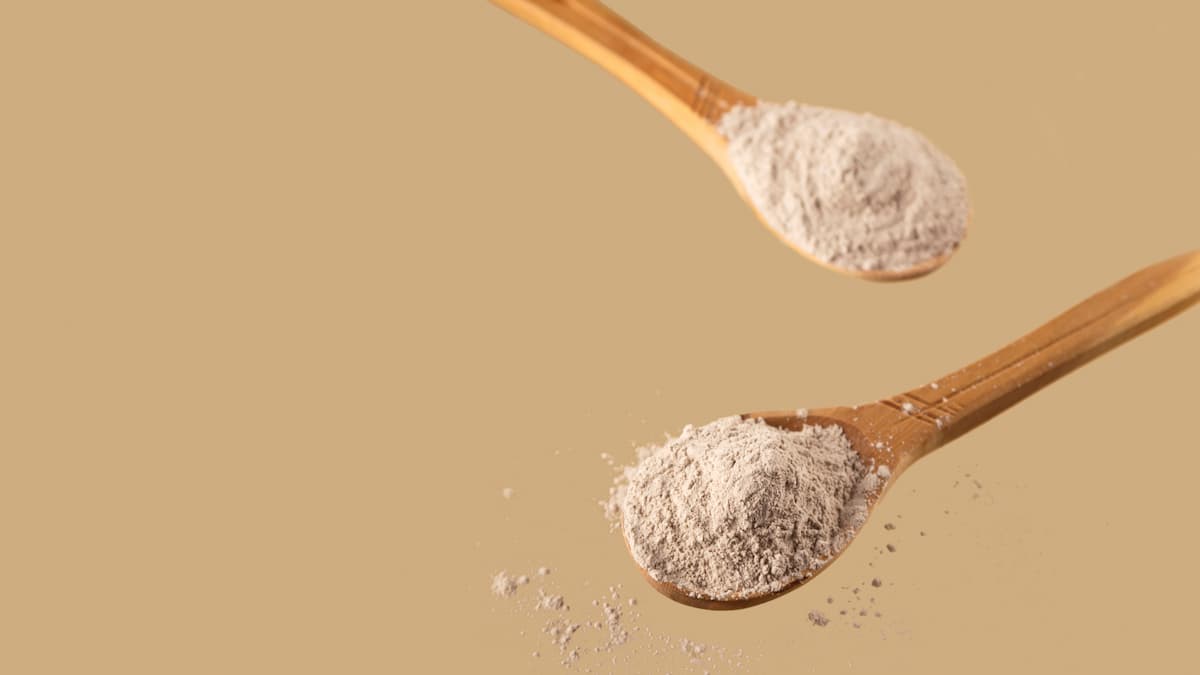
Everything you want to know about COLLinstant collagen.

Collibre collagen is an interesting supplement in shot form.
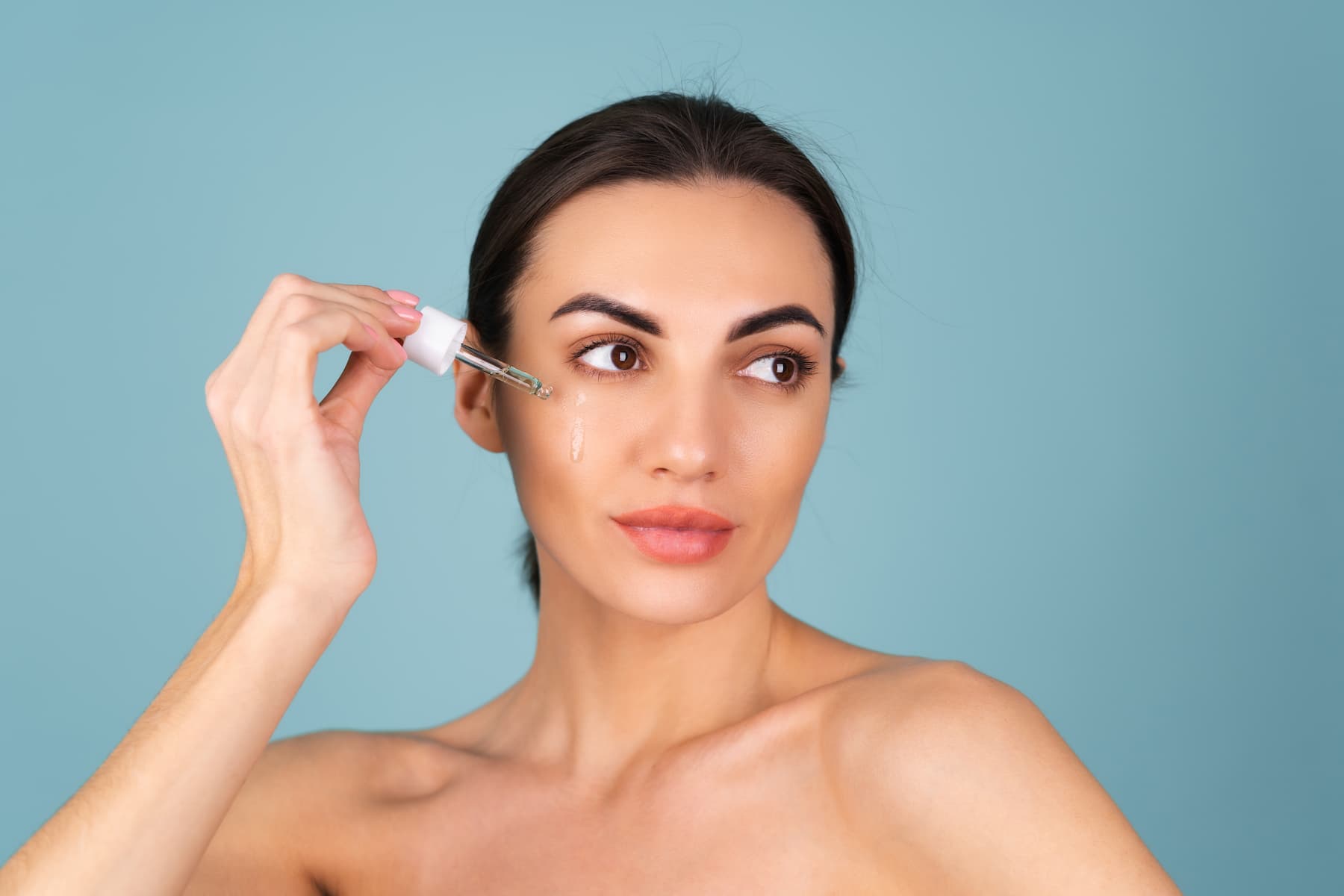
Solgar collagen with hyaluronic acid is a dietary supplement that supports skin and joint health.
